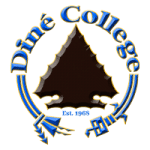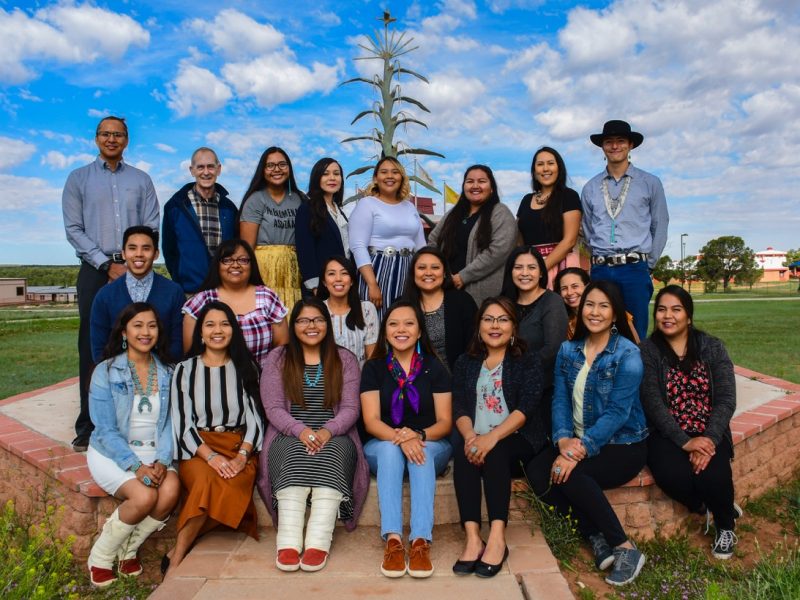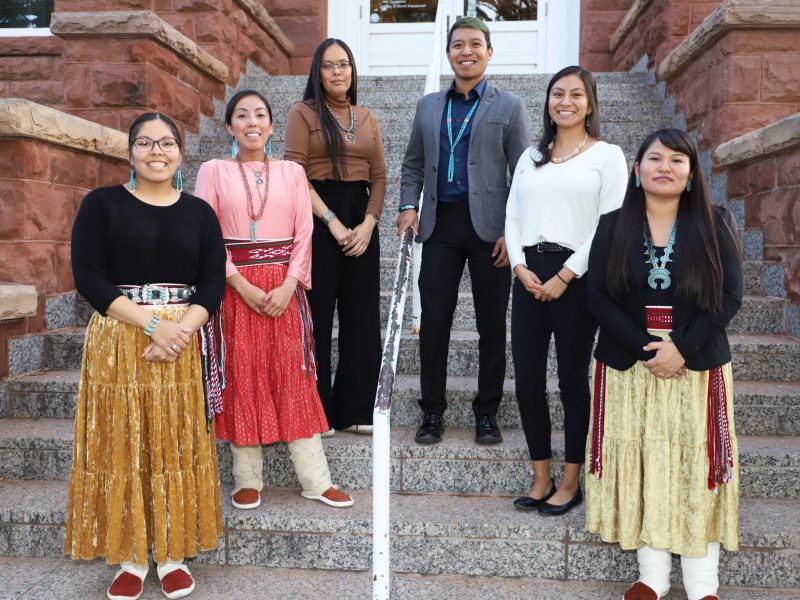Diné College high school programs
Shawndeena George, MPH
Diné College undergraduate programs
Tressica Johnson, MPH
NAU Master of Public Health
Sara Shuman, PhD
Early stage investigators (ESIs)
Nicolette Teufel-Shone, PhD
Important dates
ISEP 2024 application deadline: March 22, 2024 (11:59 p.m. MDT) Program dates: June 7–14, 2024About the partnership
The Navajo Native American Research Center for Health (NARCH) Partnership is a collaboration between Diné College, a Tribal College of the Navajo Nation, (MPI: Mark Bauer, PhD) and Northern Arizona University (MPI: Nicolette Teufel-Shone, PhD).
One goal of NARCH is to develop American Indian scientists and health professionals through an educational pathway. The pathway includes four levels:
Aim 1: Expand NARCH collaborations with high schools and related youth organizations to inform and expose students to the roles and career paths of health-related professions
Aim 2: Expand the Diné College Bachelor of Science in Public Health (BSPH) program by developing additional local research experiences, strengthening academic skills and alignment with graduate programs, and building connections across Diné College’s six campuses on Navajo Nation to support student learning and development.
Aim 3: Adapt the NAU Master of Public Health (MPH) Indigenous Health (IH) concentration, to align with the practice and research needs of the Navajo Nation Department of Health, Indian Health Service and Diné College.
Aim 4: Mentor recent Navajo post-doctoral fellows or Early Stage Investigators (ESIs) to build skills for successful, externally funded research careers focused on health equity for the Navajo Nation.
High School-Level Projects
Internships: Each semester, about 10 high school students from schools across the Navajo Nation participate in a Public Health internship program with local health agencies.
Dual Credit: High school students can take public health (or other courses) to get an early start by earning college credits through Diné College’s Dual Credit Program, while still attending high school.
For more information, visit the Diné College website.
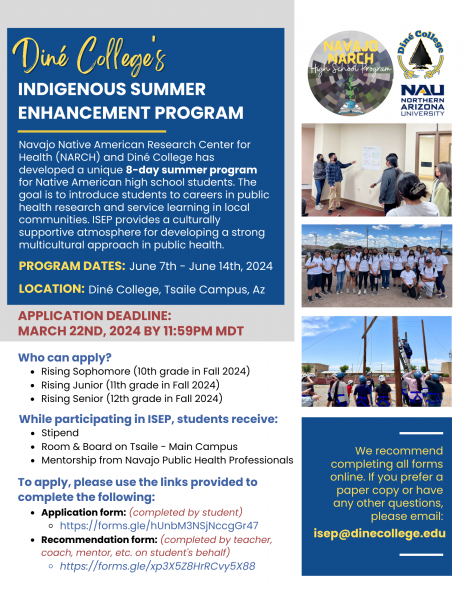 Summer program: The Indigenous Summer Enhancement Program (ISEP) started in 2018. ISEP is an 8-day program for American Indian students, where they stay at Diné College Tsaile campus dorm, learn about public health careers in a culturally supportive atmosphere, and participate in service-learning with local health agencies. For more information or to apply visit the Diné College ISEP page.
Summer program: The Indigenous Summer Enhancement Program (ISEP) started in 2018. ISEP is an 8-day program for American Indian students, where they stay at Diné College Tsaile campus dorm, learn about public health careers in a culturally supportive atmosphere, and participate in service-learning with local health agencies. For more information or to apply visit the Diné College ISEP page.
Each year, 12 high school students from the Navajo Nation participate in a public health service-learning program with local healthcare businesses to offer service-learning or volunteer options for high school students. The dual credit program (students receive Diné College and high school credit at the same time), recently expanded from Window Rock, Arizona, to include two additional areas within the Central Consolidated School District, Shiprock and Kirtland, in New Mexico.
Undergraduate-level projects
Diné College BSPH: Diné College offers a Bachelor of Science in Public Health degree. For more information or to register for the public health programs at Diné College, visit its website.
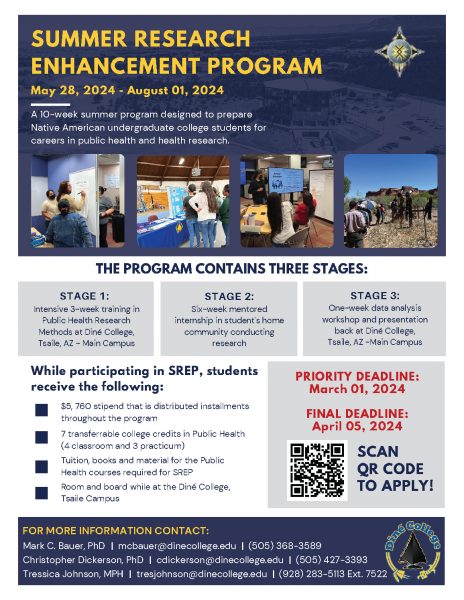 Summer program: NARCH supports the 10-week Summer Research Enhancement Program (SREP). SREP has been ongoing for more than 15 years. Students participate in three weeks of classroom instruction at the Diné College Tsaile campus, then students are assigned to a health-related internship for six weeks to gain practical experience with data collection. In the final week, students return to the Tsaile campus to analyze and present their final project. For more information on SREP or to apply, visit the Diné College SREP page.
Summer program: NARCH supports the 10-week Summer Research Enhancement Program (SREP). SREP has been ongoing for more than 15 years. Students participate in three weeks of classroom instruction at the Diné College Tsaile campus, then students are assigned to a health-related internship for six weeks to gain practical experience with data collection. In the final week, students return to the Tsaile campus to analyze and present their final project. For more information on SREP or to apply, visit the Diné College SREP page.
Learn more about SREP using the SREP 2024 Brochure.
Graduate-level projects
Northern Arizona University MPH: The Health Science Department offers a Master of Public Health (MPH) in Indigenous Health. The program offers a mixture of online and face-to-face courses on the NAU mountain campus. For more information on the MPH program or how to apply, visit the NAU Graduate College website..
Graduate Certificate in Public Health: The Health Science Department offers an online Public Health Graduate Certificate (GCERT), which includes four graduate-level public health courses (12 credits). Students interested in a MPH may transfer the completed GCERT credits, pending acceptance into NAU’s MPH program.
This partnership has been supported for six years by the National Institutes’ of Health National Institute of General Medical Sciences (NIH-NIGMS), 1S06GM142121-01 (2021-2025).
Early Stage Investigators Projects
NARCH supports recent American Indian post-doctoral fellows or early-stage investigators (ESIs), by providing mentorship with senior investigators from NAU to build skills to develop a successful research project with Navajo Nation communities. ESIs have the opportunity to attend panel webinars, conduct needs assessments, and attend workshops on grant writing and manuscript development supported by NARCH.
Links to research publications Accordion Closed
Links to media features on the Navajo NARCH Program Accordion Closed
- How NAU is helping reduce health inequities among Indigenous populations
- Developing future Diné public health leaders starts with early, culturally significant exposure (NAU Review)
- Master of Public Health, Indigenous Health Track: An innovation in training future health equity leaders
- CHER partnerships build capacity to address American Indian health
- Diné College public health students provide vaccine education to Navajo Nation residents through study
- Healthy Navajo K’é podcast brings maternal and child health talks to the Navajo Nation
- Resilient teamwork: partners adapt summer program during COVID
- Diné College partners with CHER and others to produce the first Navajo Nation Maternal and Child Health Assessment in Arizona history
- Summer public health enhancement programs for Diné College students, NAU’s project partner, move online during pandemic
- CHER partners with Native American Research Centers for Health (NARCH)
- Indigenous Summer Enhancement Program is Accepting Applications for Summer 2019
